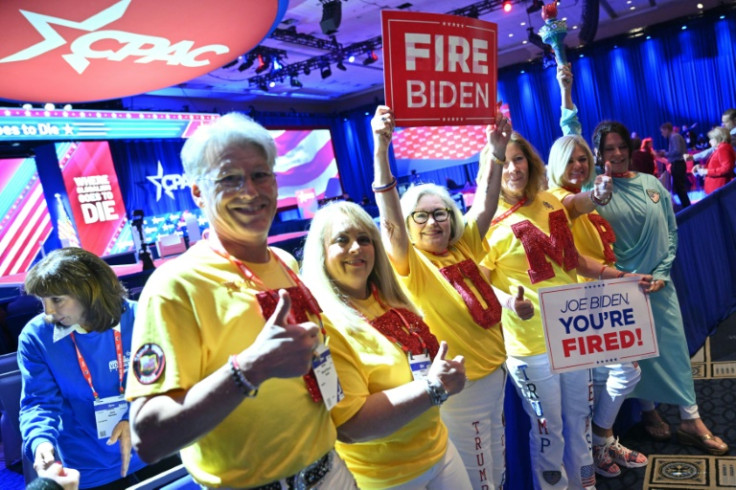
The annual Conservative Political Action Conference (CPAC), known for its eclectic mix of conservative ideologies, offered a glimpse into the evolving agenda of the Republican Party. Among the noteworthy events were a digital pinball game seemingly defending the January 6 insurrection, a panel discussion provocatively titled "Putting Our Heads in the Gas Stove," and an interview featuring Steve Bannon and former British Prime Minister Liz Truss, drawing an eager but limited online audience.
Once seen as a fringe event, CPAC has evolved into a powerful force shaping the conservative agenda. In contrast to previous perceptions, CPAC now stands at the forefront of the conservative movement, reflecting the transformation within the GOP. The conference's themes, such as challenging election legitimacy and framing discourse in moral terms, align closely with the current conservative ethos. According to Time Magazine, CPAC's increasing impact in defining the contemporary conservative narrative, challenging traditional Republican ideologies, and contributing to the broader realignment within the conservative movement is noteworthy.
This year's CPAC showcased three pillars that the Republican Party believes will shape its strategy for the 2024 elections, reported by The Guardian, First, speakers passionately addressed what they deemed a crisis at the southern border, portraying it as a "war zone" invaded by "thugs, Islamic extremists, and Chinese spies." Second, the conference embraced a rare focus on foreign policy under the theme "Where globalism goes to die," advocating for an "America first" isolationist stance and opposing further funding for Ukraine.
The third pillar revolves around the belief that only Donald Trump can save American democracy. Multiple speakers portrayed Trump as both an underdog, bravely battling political persecution, and a powerful figure fighting for the forgotten. This stark contrast was evident in the depiction of Joe Biden as both a criminal mastermind and a senile old man.
Kristi Noem, the governor of South Dakota and a potential Trump running mate, declared, "Joe Biden and Kamala Harris suck," while emphasizing that the gridlock in Congress would not provide solutions. She expressed her belief that the next president should be Donald Trump, echoing sentiments shared by other speakers at CPAC, the Guardian report added.
The conference marked its 50th anniversary, having evolved from Ronald Reagan's call for conservative unity to its current rightward shift, now effectively dubbed "The Trump Show." Despite its apparent allegiance to Trump, CPAC has faced a diminishing relevance, with sessions held in half-empty ballrooms and diminished media presence.
Immigration remained a focal point, with speakers such as Elise Stefanik and Thomas Homan emphasizing the need to resume construction of the border wall and addressing what they termed an "invasion" at the southern border. The discourse largely overlooked the positive contributions of immigrants, delving into nods towards white nationalism and divisive rhetoric.
CPAC speakers drew a sharp contrast between the border crisis and the ongoing conflict in Ukraine, questioning the allocation of taxpayer dollars to foreign aid. There was little support for Congress to pass a national security bill providing military funding for Ukraine, with some suggesting that Donald Trump would handle the situation differently.
The marketplace at CPAC featured a range of merchandise, from Trump-themed items to a virtual pinball machine themed around the January 6 insurrection, reinforcing the Republican narrative. As CPAC unveiled these key agenda points, it provided a unique window into the soul of a Republican party grappling with its identity and priorities in the lead-up to the 2024 elections.







